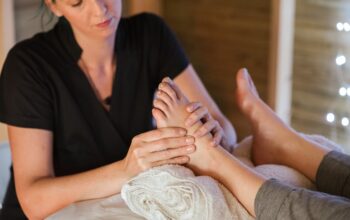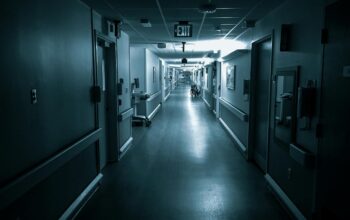Introduction
The cause of a stroke is when a blood vessel in the brain ruptures, causing a blockage in the blood supply to the brain. It is one of the leading causes of death. There are three types of strokes:
- Ischemic stroke: It is the most common stroke type where a blood clot prevents blood and oxygen from reaching the brain.
- Transient ischemic attack: this occurs when a part of the brain doesn’t receive an adequate amount of blood supply for a short period, and then normal blood flow resumes. It is also known as a ministroke.
- Hemorrhagic stroke: This occurs when a blood vessel ruptures in your brain.
Symptoms of a stroke
The reduced blood flow to the brain often damages the brain tissues. The symptoms of a stroke show up in different parts of your body, mainly in the region where the blood flow is affected. If you observe any of the below symptoms, it is advisable to visit the best neurosurgery hospital in Bangalore for early treatment.
The earlier you see a sign of a stroke and rush to the hospital, the better it is.
Some symptoms of a stroke are:
- confusion
- paralysis
- difficulty walking
- slurred speech
- numbness in one side of your body
- vision problems
- dizziness
- severe or sudden headaches
- losing balance and coordination
Prompt action on the symptoms of a stroke is the only way to reduce a stroke’s damage. Some of the damage to your body includes:
- long term disability
- brain damage
- Death
Risks of Stroke
Certain risk factors make you more prone to a stroke. The higher the number of strokes, the higher your chances of facing a stroke.
Certain risk factors include:
- An unhealthy diet: A diet that is high in salt, trans fat, saturated fats, and cholesterol increases your chances of having a stroke.
- Alcohol Consumption: If you drink too much alcohol, the risk of a stroke increases. You should limit your consumption of alcohol to reduce the risk of a stroke.
- Physically Inactive: Lack of exercise or being inactive generally increases the chances of a stroke. Exercising regularly reduces the chances of a stroke.
- Smoking: Using tobacco in any form increases the risk of a stroke. It damages the blood vessels and your heart. Smoking further increases the chances of a stroke since nicotine increases your blood pressure.
- Genetic or Family History: People who have a history of high blood pressure are more prone to strokes.
- Age: the older you get, your chances of having a stroke increases.
- Health History: Certain medical conditions, including high blood pressure, a previous stroke, or high cholesterol, increases the risk of strokes.
Treatment
You will need proper evaluation before the doctors suggest any treatment. You can consider going to the best neurosurgery hospital in Bangalore to receive adequate treatment. The type of treatment you will get depends mostly on the kind of stroke.
Ischemic Stroke or TIA
- Antiplatelet or anticoagulants
- Mechanical thrombectomy
- Clot breaking drugs
- Surgery
- Stents
Hemorrhagic Stroke
- Coiling
- Medications
- Clamping
- Surgery
There is some medication that you can take to prevent a stroke. Your doctor will recommend you based on the type of stroke you suffered from. Some medications include:
- Antiplatelet drugs
- Tissue plasminogen activator
- Anticoagulants
- Blood pressure drugs
- Statins
Prevention
To prevent a stroke, you need to take some steps to change your lifestyle. It includes:
- Stay within your weight limit: If you are overweight, you should reduce your weight to prevent strokes.
- Quit smoking: If you smoke, you should quit it to lower the risk of a stroke.
- Reduce alcohol intake: Alcohol can raise your blood pressure, which increases the risk of a stroke. It is better to avoid consuming alcohol or reducing the amount you drink.
- Get yourself checked frequently: Regular check-ups will help diagnose even the slight possibility of facing a stroke. Always stay ahead of your game and make sure to get regular check-ups done. Some steps to include are: discuss medications with your doctor, get your cholesterol checked regularly, talk to your doctor about changes in your current lifestyle, and address any heart problems you have with your doctor.
Recovery
Recovery from a stroke can be time-consuming but is the only option after medications. Your recovery should start so soon as possible, and some of the recovery treatments are:
- Cognitive therapy
- Speech therapy
- Relearning sensory skills
- Physical therapy
Conclusion
Suppose you experience or suspect anything unusual, it’s better to seek medical help immediately. The early treatment of a stroke is the most effective in treating a stroke and leads to fewer complications. It also reduces the chances of lifelong disabilities. Always try to seek medical help, and preventing the first stroke is preventing the second stroke. Medications also reduce the risk of blood clots, which leads to strokes.



